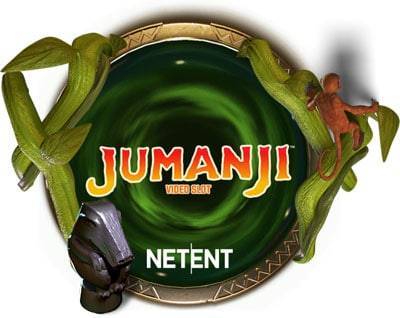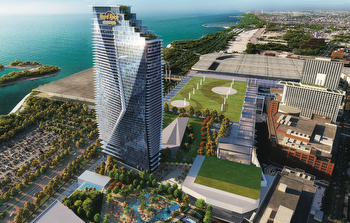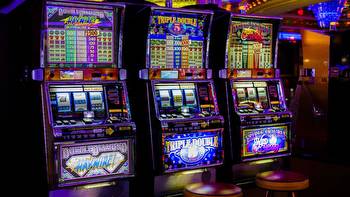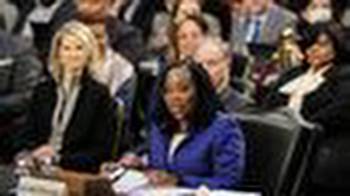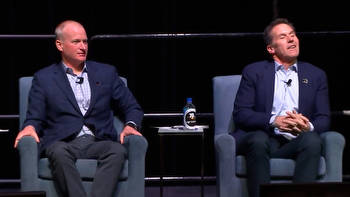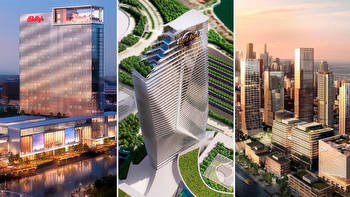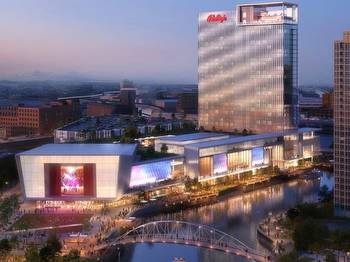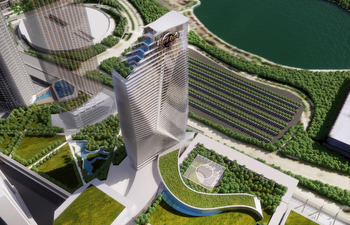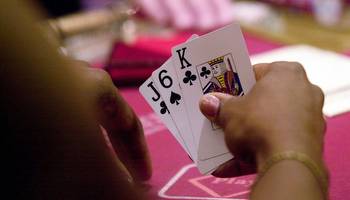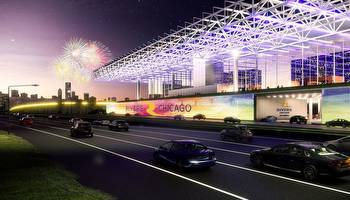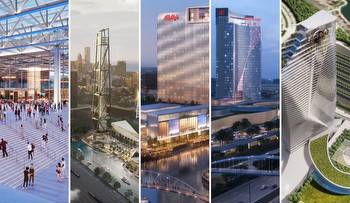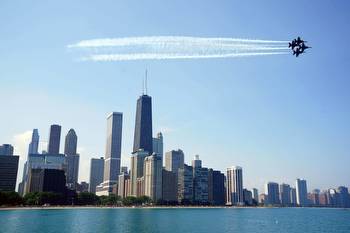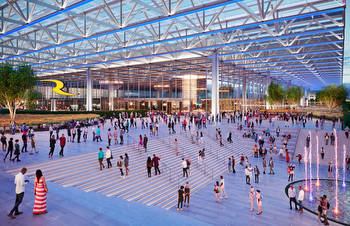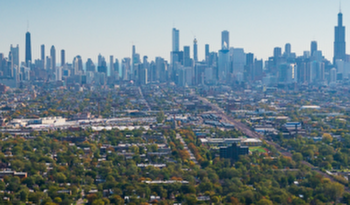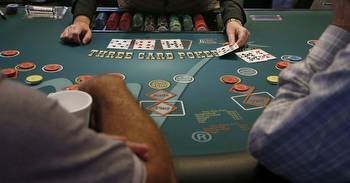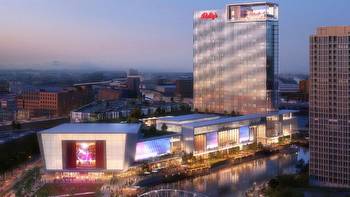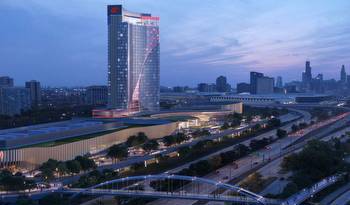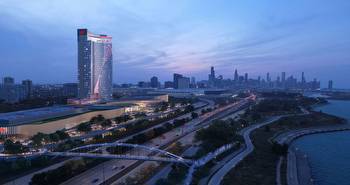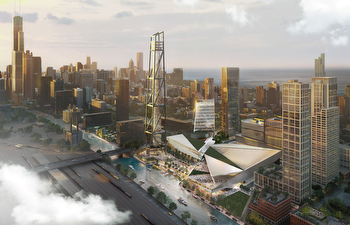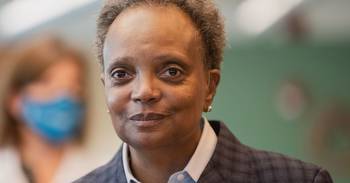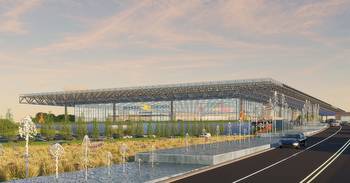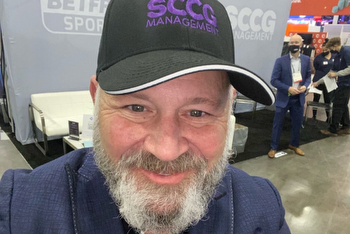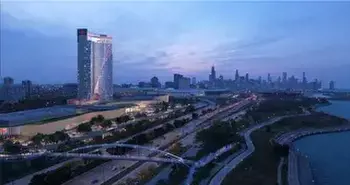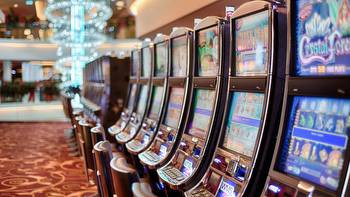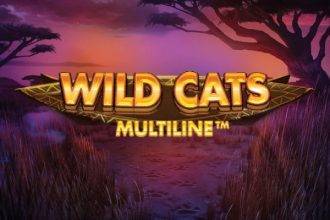Bally's, Hard Rock, Rush Street pitch 5 Chicago casino bids to public; Mayor weighs financial viability

Bally's, Rush Street Gaming and Hard Rock International presented five competing bids for a permanent Chicago casino to the public during a marathon meeting Thursday, attended by Mayor Lori Lightfoot, who said she wants the winner to be financially viable, architecturally stunning and be guided by the principles of inclusion and equity.
The major casino developers made their pitches in the first round of public presentations to win Lightfoot’s backing to take on a project that has been sought for decades.
The daylong slate of five presentations at UIC’s Dorin Forum included promises of economic jolts, job creation and jackpots for the city’s future casino tax revenue coffers, which are earmarked for its damaged police and firefighter pension funds.
Lightfoot is aiming to pick a winner by early 2022. “They look beautiful, and they’re saying a lot of things that really, I think, speak to our values, but as you all know, the devil’s in the details, and my financial team is going to do a deep scrub to make sure that we understand: are these projects really viable?” Lightfoot said.
The casino is expected to eventually rake in around $1 billion per year. Billionaire Neil Bluhm's Rush Street Gaming, which operates Rivers Casino in Des Plaines, is behind two proposals, against two other bids from Rhode Island-based Bally’s Corporation and one more from Hard Rock.
For his first pitch, Bluhm’s $1.3 billion proposal for the so-called Rivers Chicago at McCormick is backed by Farpoint Development, McClaurin Development at the nonprofit Chicago Neighborhood Initiatives. In selling their plan to overhaul the seldom-used Lakeside Center, the group said they could start taking bets within a year since the infrastructure is already in place, as reported by Chicago Sun-Times.

While Bluhm targeted Bally's saying "Chicago needs an experienced developer with a steady hand", and that it "is not the time or project for on-the-job training,” Bally’s officials responded during their presentation by noting that unlike Bluhm, they’re “conflict-free,” with no other gambling interests in the Chicago area.
“Chicago will be our most profitable property and the flagship of our extensive portfolio,” Bally’s chairman Soo Kim said.

The East Coast company pledged to create more than 18,000 construction jobs and 2,000 permanent jobs at either of their two proposed sites: the River West Chicago Tribune Publishing Center near Halsted Street and Chicago Avenue, or the McCormick Place Truck Marshaling Yard on Chicago's South Sidenear 31st Street and DuSable Lake Shore Drive, which could face hurdles since it reportedly has a previous lease deal with another developer.

Both plans add up to $1.8 billion in investments and come in two phases that also call for a “Second City” club and a Chicago sports museum. Bally’s said their South Side plan would generate more money — but they’ve run into immediate opposition from Ald. Sophia King (4th), who has said for years she wouldn’t green-light a casino near Bronzeville. Kim said Bally’s hasn’t yet had discussions with any City Council members.
Bluhm’s other casino investment group presented its Rivers 78 plan worth $2 billionwith megadeveloper It aims to break ground on an entirely new South Loop neighborhood on the 62 vacant acres near Roosevelt Road and Clark Street. They claim the plan would create more than 7,000 jobs, including construction and permanent positions.
It calls for a 450,000-square-foot casino, a half-mile riverfront “promenade” and a 1,000-foot observation tower. All of that would coexist with a massive research center that is also planned for the site, according to Related Midwest president Curt Bailey. “There’s nothing like this tower in Chicago,” Bailey said. “You’ll be able to rise to the top on a glass elevator — an Eiffel Tower for Chicago.”
As for Hard Rock, developer Bob Dunn pitched a $1.7 billion casino as part of the massive proposed One Central project over the Metra tracks near Soldier Field. It would include a expansive retail district and a transit hub connecting CTA to Metra.

But the overall One Central project hinges on $6.5 billion in state financing that hasn’t been approved. Dunn said Hard Rock is ready “to proceed immediately” with the casino even if the public money doesn’t come through for the rest of the project.
The Hard Rock bidders also noted they’re the only contender with an ownership group of at least 50% Black or Brown investors at the partner level.
Now, the city will host follow-up community meetings to present revisions to any proposals, if necessary. Once the city Mayor Lori Lightfoot’s review team recommends a final applicant for approval, the bidder will submit an official planned development application to the city, and the Chicago Plan Commission would then hold a hearing on the chosen proposal.
If approved by the Plan Commission, the selected bid would then go to the City Council Zoning Committee for consideration before a vote by the full City Council. If approved, that proposal would then need to get approval for a casino license from the Illinois Gaming Board, before the selected developer could set up a temporary casino while building a permanent facility. Lightfoot wants the completed casino built by 2025.
The presentation came one day after the Chicago City Council agreed to lift the Chicago ban on sports betting and impose a Mayor-backed 2% tax on gross revenues from it, which allows sportsbooks to open in and around Soldier Field, Wrigley Field, Guaranteed Rate Field, the United Center and Wintrust Arena. Two off-track betting businesses licensed in Illinois could also opt to set up sportsbooks in Chicago, and one would be allowed in the future casino as well.







